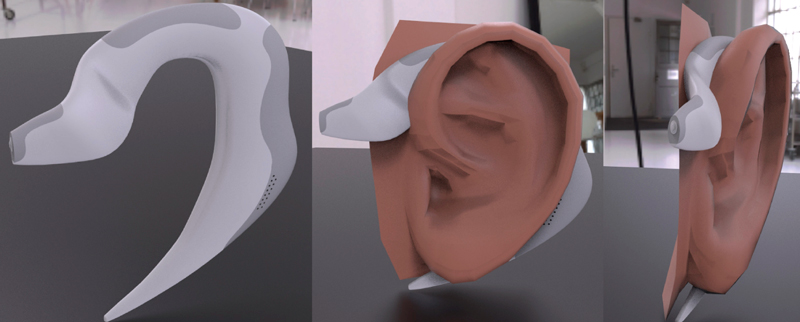
2023/05/03
Horizon Europe project to combat diet-related diseases through novel monitoring technologies and personalized nutrition
The CoDiet project will trial innovative diet-monitoring technologies to improve our understanding of the relationship between the food we eat and common diseases such as heart disease, diabetes, obesity and cancer.
A new research project has been launched to investigate the relationship between non-communicable diseases (NCDs) and diet, by developing artificial intelligence tools, to provide personalized nutritional advice, based on trialling innovative monitoring technologies such as wearable smart cameras.
Unhealthy diets are often associated with metabolic changes and increased risk of NCDs, such as heart disease, diabetes, obesity and cancer. According to the World Health Organisation, NCDs kill 41 million people each year, equivalent to 74% of all deaths globally.
However, the dietary mechanisms that actually drive NCDs are relatively unknown and these diseases are often over-represented in lower socioeconomic backgrounds, generally as a consequence of the lack of data related to vulnerable groups. The current tools used to collect information depend on self-reporting, which can be unreliable.
CIC bioGUNE – member of BRTA – will participate in the EU-funded CoDiet project, led by AZTI, a research centre based in the Basque County (Spain). This project will address these knowledge gaps and develop a bespoke artificial intelligence-based tool that can assess individual, diet-induced NCD risk and deliver personalized dietary advice.
In that context, the CoDiet project will test an intelligent, wearable camera, developed by Imperial College London, to collect dietary information. The camera is designed to be worn on the ear and passively record what the wearer eats; it will use novel computer vision and deep learning techniques to automatically recognize food types and estimate portion sizes. This will be coupled with other technologies that help us understand how food is processed in the body, including analysis of the gut microbiome and metabolites in the urine.
The project will also develop a tool that will simulate change in NCDs, in response to diet at the population level, with the goal of promoting the uptake of NCD-protective diets. Currently, efforts to tackle these issues on a population scale take a ‹‹one-size-fits-all›› approach, and the hope is that personalized dietary advice can lead to more effective results.
Lead researcher Dr. Itziar Tueros, Head of Food and Health at AZTI, pointed out: “It is well established that each person’s metabolic response to the same diet differs. CoDiet will work on the personalization of dietary advice instead of the ‹‹one-size-fits-all›› approach.”
“In order to develop a holistic solution to the major challenge of preventing NCDs, it is essential to assemble a multidisciplinary team of leading scientists. This is what CoDiet does.”
Professor Gary Frost, Head of Nutrition Research at Imperial College London, highlighted: “One of the major gaps in our knowledge is accurate understanding of what people eat in their day to day lives. The tools we currently have are inaccurate which makes it very difficult to understand the relationship between diet and disease. CoDiet puts this problem at the centre of the project and brings together several new technologies to address this shortcoming. By doing this we believe we will be able to design new individual-based policies to prevent common lifestyle-related diseases.”
Lead researcher, Dr. Óscar Millet, from the “Precision Medicine and Metabolism Lab” at CIC bioGUNE, said: “A correct diet is concomitantly associated to good health and to reduced frailty. One of the goals of CoDiet is to add granularity to our current knowledge in this relationship.”
The project includes researchers from seventeen research and academic institutions across ten countries: AZTI (Spain), Czech Technical University (Czech Republic), Teagasc - Agriculture and Food Development Authority (Ireland), Aristotle University of Thessaloniki (Greece), Technion – Israel Institute of Technology (Israel), CIC bioGUNE (Spain), University of Valencia (Spain), National and Kapodistrian University of Athens (Greece), Bruker Biospin (Germany), Microcaya (Spain), Sciensano (Belgium), University of Trento (Italy), Consorcio Centro de Investigación Biomédica en Red (CIBER) (Spain), Higher Institute of Health (Italy), Institute of Health Development (Estonia), Imperial College London (United Kingdom), and the University of Leicester (United Kingdom).
About CoDiet
The CoDiet project is funded by the European Union under Horizon Europe grant number 101084642.
CoDiet research activities taking place at Imperial College London and the University of Leicester are supported by UK Research and Innovation (UKRI) under the UK government’s Horizon Europe funding guarantee [grant number 101084642].
About CIC bioGUNE
The Centre for Cooperative Research in Biosciences (CIC bioGUNE), member of the Basque Research & Technology Alliance (BRTA), located in the Bizkaia Technology Park, is a biomedical research organisation conducting cutting-edge research at the interface between structural, molecular and cell biology, with a particular focus on generating knowledge on the molecular bases of disease, for use in the development of new diagnostic methods and advanced therapies.
About BRTA
BRTA is an alliance of 4 collaborative research centres (CIC bioGUNE, CIC nanoGUNE, CIC biomaGUNE y CIC energiGUNE) and 12 technology centres (Azterlan, Azti, Ceit, Cidetec, Gaiker, Ideko, Ikerlan, Lortek, Neiker, Tecnalia, Tekniker and Vicomtech) with the main objective of developing advanced technological solutions for the Basque corporate fabric.
With the support of the Basque Government, the SPRI Group and the Provincial Councils of the three territories, the alliance seeks to promote collaboration between the research centres, strengthen the conditions to generate and transfer knowledge to companies, contributing to their competitiveness and outspreading the Basque scientific-technological capacity abroad.
BRTA has a workforce of 3,500 professionals, executes 22% of the Basque Country's R&D investment, registers an annual turnover of more than 300 million euros and generates 100 European and international patents per year.

See a large version of the first picture





